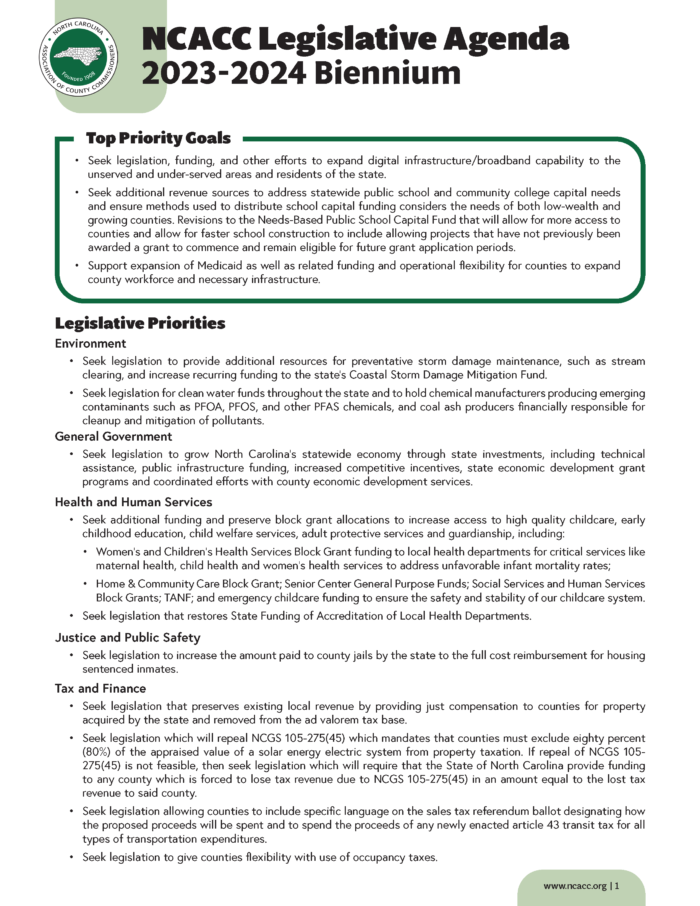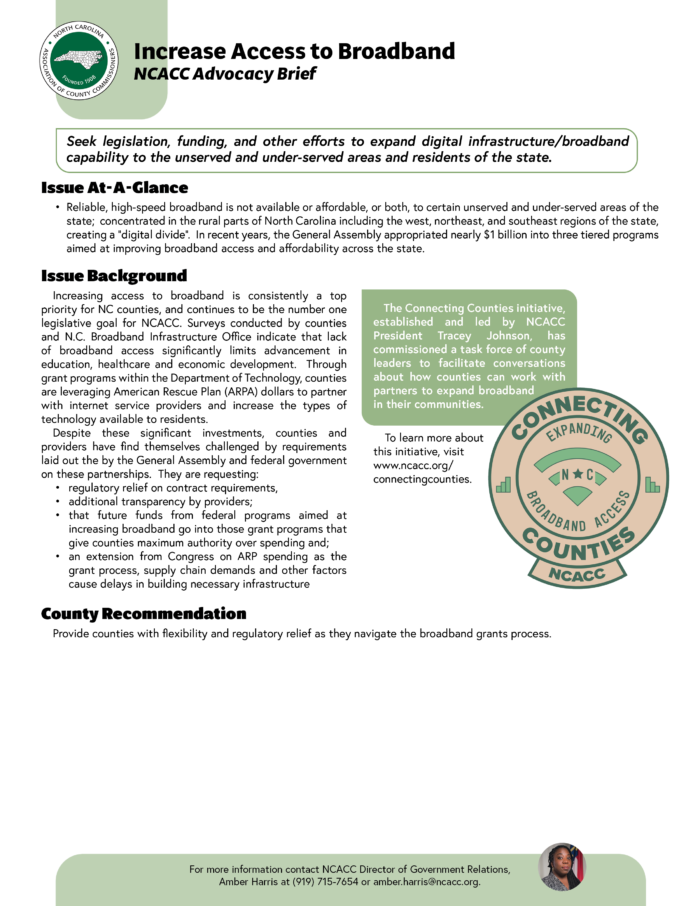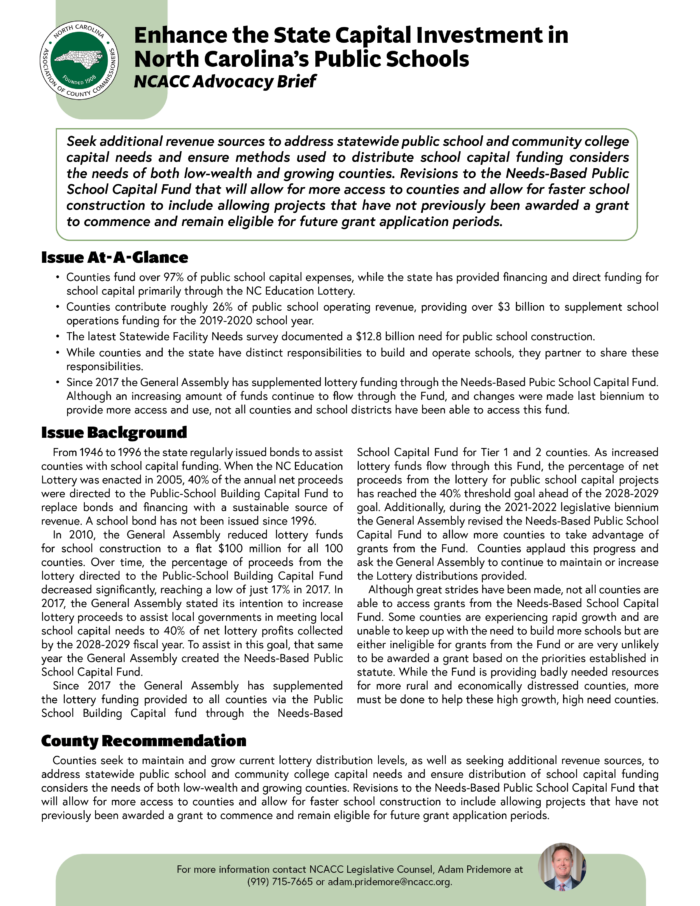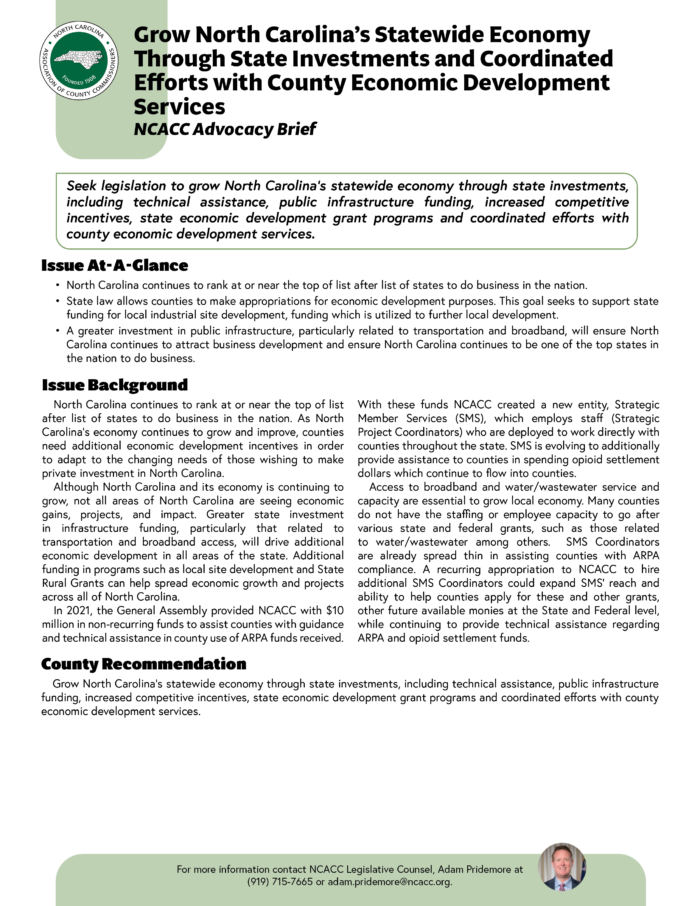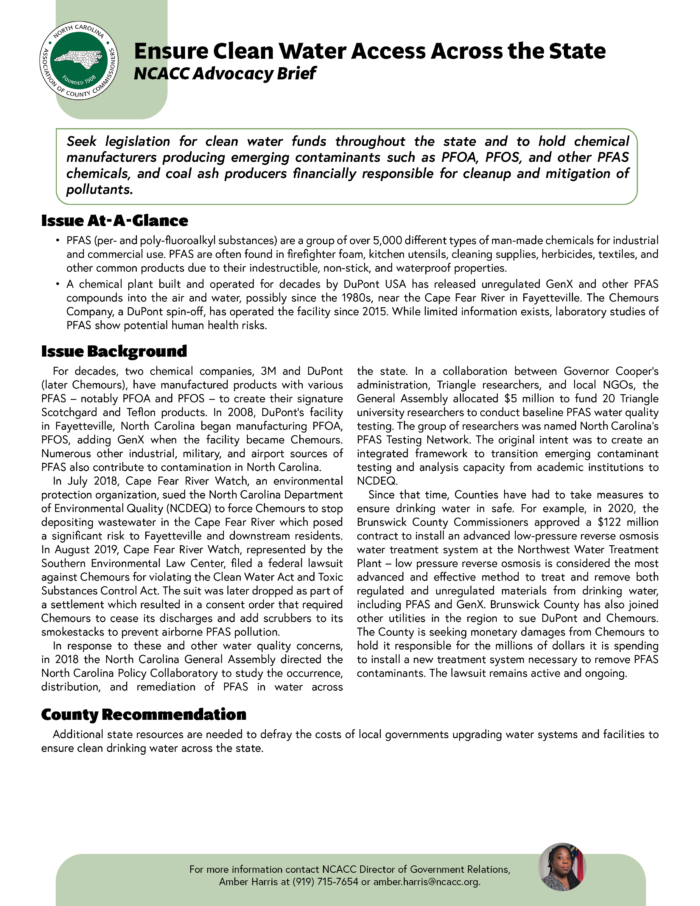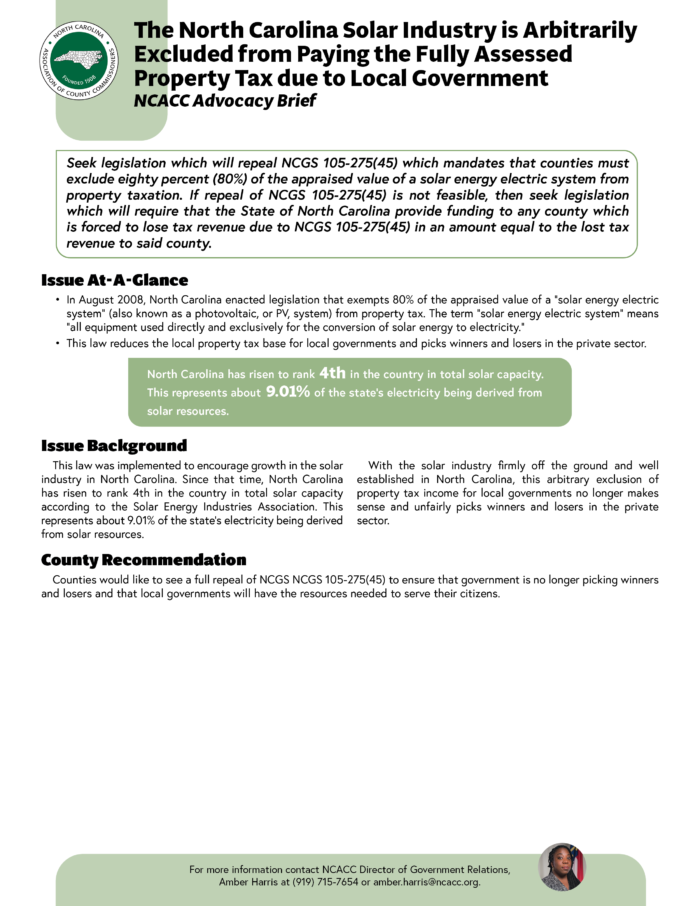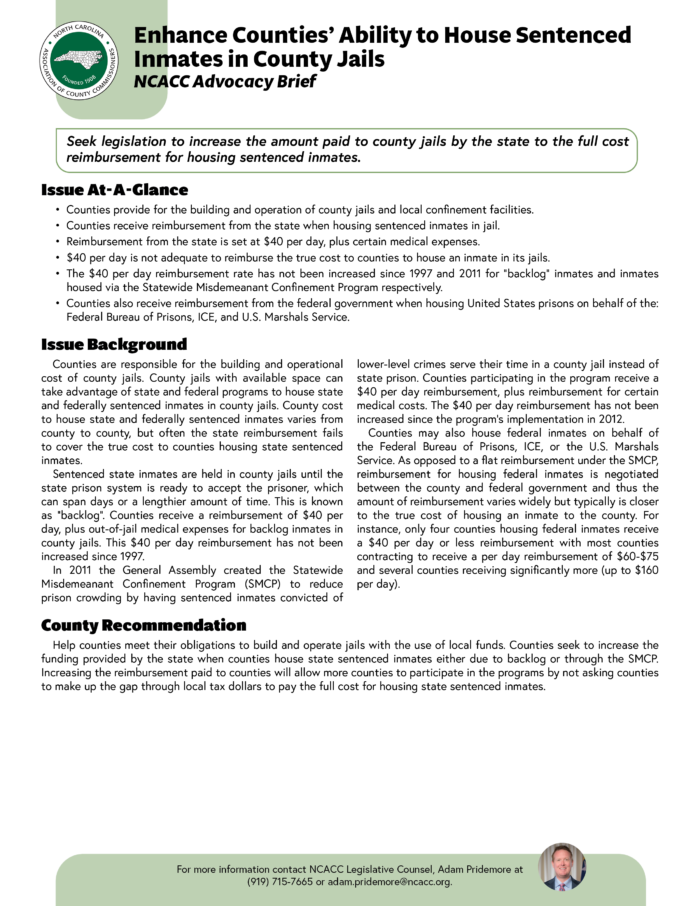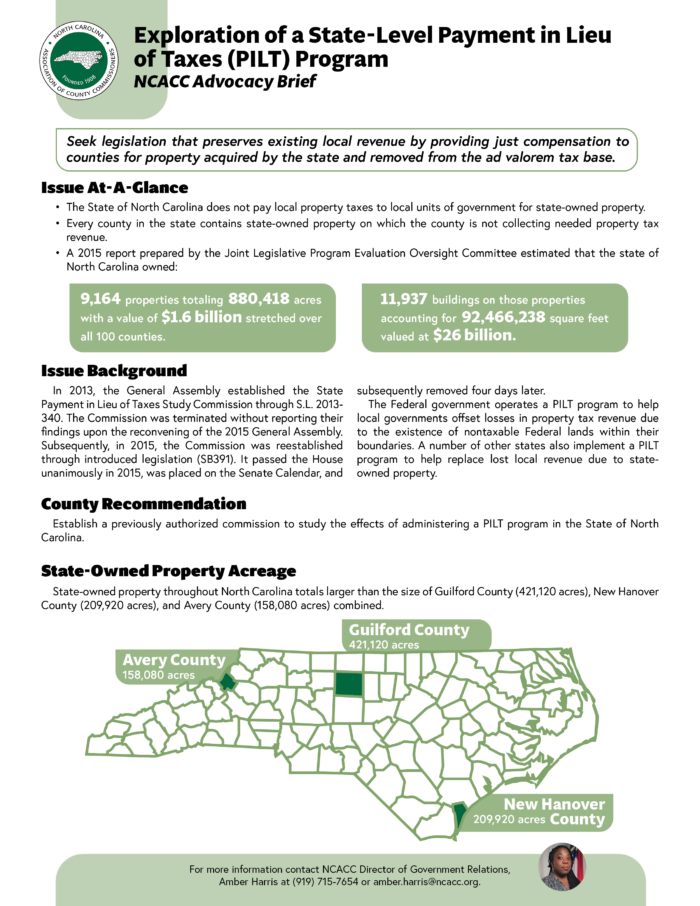Weekly Update Legislative Brief
- May 3, 2024
Notable Activity
The legislative short session may have commenced last week, but this week session began in earnest with committees meeting and taking up high-profile issues. The Senate approved House Bill 10 Require Sheriffs to Cooperate with ICE this week. The bill requires confinement facility administrators to query Immigration and Customs Enforcement of the United States Department of Homeland Security (ICE) if unable to determine whether the person in custody charged with certain offenses is a legal resident or citizen of the United States. The legislation also provides a procedure for the Attorney General to investigate complaints that an administrator is not complying with the above provisions. The bill heads back to the House for concurrence in Senate changes and could be before the governor by early next week. It is expected the governor will veto the bill.
The Senate also considered legislation this week expanding the state’s private school voucher program, or Opportunity Scholarships. House Bill 823 Eliminate School Choice Program Waitlists provides an additional $248 million for the Opportunity Scholarship Grant Fund Reserve for the 2024-2025 fiscal year due to a large number of applicants in the program that was originally budgeted for $191 million for the upcoming fiscal year. The bill also increases the annual appropriation into the Opportunity Scholarship Grant Fund Reserve annually, topping off at $800 million for the 2031-2032 fiscal year. The bill passed the Senate this week and now heads back to the House for concurrence in Senate changes to the bill. It is expected the governor will veto the bill.
In addition to these high-profile bills, legislation of interest to counties was also considered this week, including a technical correction allowing counties to budget litigation settlement funds, such as the opioid settlement funds, over multiple years like capital and project grant ordinances. Additionally, a large piece of legislation related to land-use, zoning, and planning regulatory reform was unveiled and approved in a House committee this week. See below for more information on this and other bills of interest to counties, considered at the General Assembly this week.
This week also marked the bill filing deadline for bills recommended by interim study committees and bills primarily affecting the state budget and/or retirement systems. Bills of interest to counties are listed below. The bill filing deadline for local bills will pass next week on Tuesday, May 7.
Action Items
A new version of Senate Bill 166 2024 Bldg. Code Regulatory Reform was released during this week’s meeting of the House Local Government – Land use, Planning and Development committee. The bill amends various development regulations, the North Carolina Building Code, various environment and environmental health regulations, and eliminates Extraterritorial Jurisdiction (ETJ) authority in Moore County. Highlights of the bill, which includes over 40 provisions, include:
- Prohibition of unrestricted right of entry as a condition to development approvals.
- Clarifies when local governments may withhold building permits or certificates of occupancy for public safety issues.
- Residential plan review fees reimbursement when local governments fail to perform reviews within certain timeframes.
- Prohibition of supplemental remote residential parking facilities within subdivision development.
- Prohibition of local governments adopting fire prevention code provisions that are not prescriptively required by the North Carolina Residential Code.
- Clarifications on local government review of seals of design.
- Various changes to onsite wastewater statutes, including allowing private compliance inspectors to inspect on-site wastewater systems.
- Requires all local health departments to contract with DHHS for the provision of environmental health services and directs the agreement to include quality assurance requirements.
- Additionally, the bill requires any registered environmental health specialist, registered environmental health specialist intern, or registered environmental health associate contracted to work for a local health department without a contract with DHHS is not entitled to the defense or liability protections currently provided by the Attorney General as prescribed by statute, nor would they be entitled to defense or liability protections for enforcing a local on-site wastewater rule, regardless of contract status. In the event of a judgment against, or settlement on behalf of, a registered environmental health specialist, registered environmental health specialist intern, or registered environmental health associate, this bill requires that DHHS and the local health department would each be required to pay half of the judgment or settlement.
NCACC asks that you send this bill to your planning departments for review to determine impacts to counties. Please send any concerns and feedback to NCACC Legislative Counsel Adam Pridemore.
- The full version of the bill can be found here.
- A summary of the bill produced by General Assembly staff can be found here.
The bill gained approval in the House Local Government – Land use, Planning and Development committee and next heads to the House Finance committee before being considered by the full House, possibly as early as next week.
Legislation to Know
Senate Bill 508 2023 Budget Tech/Other Corrections – Makes various technical corrections and changes to a wide variety of statutes, including the following of interest to counties:
- Adds “settlement project” to the definition of project ordinances in G.S. 159-13.2 allowing counties to budget projects financed in whole or in part by revenues received pursuant to an order of the court or other binding agreement resolving a legal dispute, such as opioid settlement funds, over multiple years.
- Provides that a sheriff may enter into a contract to provide school resource officers to a nonpublic school. If the sheriff does so, the legislation requires the nonpublic school to provide funds at least equal to the compensation, benefits, and related expenses of any school resource officer assigned to the school.
- Extends the timeline for directed grants to non-state entities.
- Makes various technical changes to county specific grants and appropriations.
- Removes “auxiliary containers” as defined by G.S. 153A-145.11(c)(1) from the definition of “solid waste” as found in G.S. 130A-290(a)(35).
The bill was approved by the House and Senate this week and now heads to the governor for consideration.
House Bill 960 Sound Basic Education for Every Child – Among other things, provides for the following:
- Directs counties to directly provide the average per pupil allocation to charter schools for each child attending a charter school, eliminating the current system of those local funds flowing from the county through the local school board to the charter schools.
- Adds charter schools to those entities (currently on the local school board) that can initiate the dispute resolution process over appropriations made by the county for operating expenses or capital.
- Authorizes a $2 billion school capital bond.
- Allows local boards of education to align their school calendars with the calendar of a community college serving the city or county in which the unit is located.
- Expansion of the Teaching Fellows Program.
- Increased teacher and school administrator pay.
- Increased funds to provide services to children with disabilities.
- Increased funding for the Low-Wealth County allotment.
- Increased funding for teacher assistant allotment.
- Expands the NC Pre-K program.
- Adjusts the School Performance Grades weighting of proficiency and growth from 80%-20% respectively to 51%-49%.
The bill was filed this week. While unlikely to get any committee hearing this session, NCACC asks for feedback on how the proposed changes to the direct funding of charter schools may impact your county. Those changes begin on page 25 of the bill. Please send any feedback to Legislative Counsel Adam Pridemore.
Other Legislation of Interest to Counties
House Bill 426 Various Environmental Amendments – Provides that artificial turf installed over a pervious surface according to manufacturer instructions is not considered a built-upon area for the purposes of state or local government stormwater programs and clarifies that a local ordinance, comprehensive plan, or stormwater program may not have a definition of “built-upon area” or impervious surface that does not comply with statutory list of surfaces that are not built-upon areas, unless required by federal law. The bill passed the Senate Agriculture, Energy, and Environment committee this week and will likely be considered on the Senate floor next week.
House Bill 930 COLA/State & Local Retirees/Funds – Provides for a 3% cost-of-living increase for retirees of the Teachers’ and State Employees’ Retirement Systems, the Consolidated Judicial Retirement System, the Legislative Retirement System, and the Local Government Employees’ Retirement System. The bill was filed this week.
House Bill 976 Workforce Development Program – Establishes the Community College State Endowment Trust Fund to, among other things, fund new programs to respond to local workforce demands. The bill also expands or creates new cooperative innovate high schools in underserved counties. The bill was filed this week.
House Bill 983 Orphan Roads Study Committee – Creates a legislative Study Committee on Orphan Roads to do the following:
- Study the number of orphan roads in North Carolina.
- Recommend solutions to bring the roads up to code and maintained.
- Recommend long-term solutions regarding road maintenance, funding, and road identification.
- Recommend any legislative changes.
The Committee is directed to report its findings no later than May 1, 2025. The bill was filed this week.
House Bill 989 Retirement Services Purchase Rewrite Part III – Recodifies and standardizes the laws relating to service purchases for the Teachers’ and State Employees’ Retirement Systems, the Consolidated Judicial Retirement System, the Legislative Retirement System, and the Local Government Employees’ Retirement System. The bill was filed this week.
House Bill 1009 Local Government Economic Distress Funding – Appropriates $7 million each to the North Carolina Association of County Commissioners, the NC League of Municipalities, and the NC Regional Councils of Government to offer broad economic development assistance to qualifying local governments. A qualifying local government is defined in the bill as those counties, and cities located within a county, ranked within the 20 most distressed counties in the State according to the State’s development tier designation. Guidelines for each grant must include, at minimum, the following:
- Grants must only be issued to qualifying local governments who, in the opinion of the eligible entities, are best positioned to use the funding to (i) propose and manage economic development projects in that local government’s jurisdiction, (ii) apply for, and manage, grants, or (iii) further one of the following purposes:
- Hosting leadership conferences or training workshops.
- Providing scholarships.
- Hosting MPA fellowships, in partnership with the School of Government at the University of North Carolina at Chapel Hill.
- Any other purpose that, in the opinion of the eligible entities and the Department of Commerce, is in accordance with the proposed act’s purposes and intent.
The bill was filed this week.
House Bill 1044 County Tier Designation Study Bill – Directs the North Carolina Policy Collaboratory to study the effects of various proposed changes to the county tier designation system and submit findings to the Joint Legislative Oversight Committee on Economic Development and Global Engagement and the Fiscal Research Division no later than December 1, 2025. The bill was filed this week.
House Bill 1051/Senate Bill 834 Invasive Species Control and Prevention – Provides for state control and prevention of invasive species and repeals conflicting local ordinances. The bill was filed this week.
Senate Bill 802 C-PACE Program – Authorizes the establishment of a statewide Commercial Property Assessed Capital Expenditure and Resilience Act (C-PACE) program that local governments may voluntarily join to allow willing owners of commercial, industrial, agricultural, nonprofit, and multifamily residential properties with five or more dwelling units to obtain low-cost, long-term financing for qualifying improvements, including energy efficiency, water conservation, renewable energy, and resilience projects, secured by an assessment and lien as authorized by the legislation. The bill was filed this week.
End of Session Report
The North Carolina General Assembly adjourned on October 25, 2023, to convene one day a month until April 24, 2024, capping off the long session of this biennium. The Association has released its final end of session report that outlines the major legislative happenings, the details of the state budget, and major developments with impact to counties during the long session. The full report is available here.
Budget Reports
Overview of 2023-24 State Budget and Impact to Counties
Following a summer long negotiation between the House and the Senate, a budget deal has been struck. The General Assembly plans to spend $29.8 billion in FY 2023-24 and $30.9 billion in FY 2024-25. With considerable shortages of teachers and state workers, this budget has prioritized salary adjustments by giving most state employees a 7% pay raise across the biennium. Teachers will also receive an average pay raise of 7% in that same time period, while starting teaching pay will increase by 11% to $41,000 in FY 24-25. Additionally, this budget agreement grows the Rainy-Day fund balance by $125 million for a total of just under $5 billion and cuts taxes by $1.2 billion over the next two years. The budget also invests billions of dollars in capital and infrastructure projects, including water infrastructure and K-12 public school capital infrastructure, throughout the state. The budget includes more than 2,000 special provisions, and NCACC urges counties to search the budget document for their counties and municipalities. Once enacted, counties can search for direct grants at www.osbm.nc.gov/directed-grants-database.
In addition to making financial investment in county priorities, the budget also makes various policy changes impacting counties, including the modification of a General Assembly commission to expand the commission’s oversight of, and ability to investigate, local governments and local officials (Section 27.10); and gives the Secretary of DHHS broad authority when realigning LME-MCOs (Section 9G.7a.)
To read the full NCACC report on the state budget, click here.
2023-2024 Legislative Goals
Every two years, in the months preceding the long session of the North Carolina General Assembly, NCACC begins a grassroots process to develop our Association’s legislative goals, which guide our advocacy efforts at the state and federal levels of government. The process is designed to maximize participation by counties, build consensus among counties, and achieve a unified message on county priorities. View the 2023-2024 Legislative Goals.
The importance of participating in the legislative goals process cannot be overstated. When policymakers hear the same message from all 100 counties throughout our diverse state, the voice of each individual county becomes amplified. Counties are stronger together and our common purpose is enshrined in NCACC history and our vision statement, which states: “Empowering 100 counties to work together for the betterment of one state.”
Advocacy Briefs
Video Library
How to Find Your Legislator
How to Find and Track a Bill
How to Read a Bill
NCACC County Lines Video Series
NCACC Policy Team
*Registered lobbyists

Kevin Leonard*
Executive Director
(919) 715-4369 Email Kevin
Laurel Edwards
Director of Policy Planning
(919) 715-4362 Email Laurel
Amber Harris*
Director of Government Relations
(919) 715-7654 Email Amber
Adam Pridemore*
Legislative Counsel
(919) 715-7665 Email Adam
Denise Canada
Fiscal Policy and Research Director
(919) 715-8044 Email Denise

